
Elroy Jetson reading a paperback book.
Just ask an AI engineer what our jobs will look like in 50 years from now and hear them fumble and pull out different hypotheses. We might as well be flying with George Jetson in his “aerocar”. The likeliness of each scenario only matched by the unlikeliness of it to play out exactly as proposed.
And while our mission in Le Wagon is to deliver tech-skills to non-technical professionals, a lot of what we screen for when selecting our students and much of what we teach in our programs is mindset. Technology and its corresponding skills change faster than most of us can say “Application Programming Interface”, which means we need to prepare ourselves, our students and the teams we train to not only have the relevant technical skills but to have the mindset to stay relevant in the 21st-century workforce.
You can view each of these book recommendations as being a tile that when laid out together completes an individual and/or organizational mosaic for a 21st-century mindset.
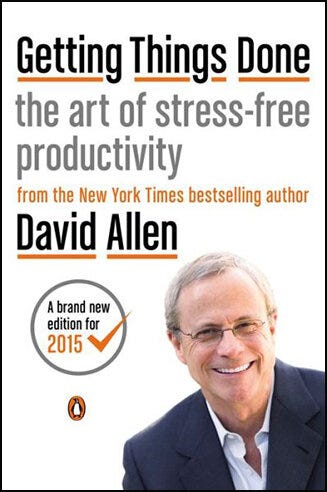
Productivity | Getting Things Done: The Art of Stress-Free Productivity by David Allen
The ubiquitous and frequent volume of potentially meaningful information we receive is 50-fold when compared to that of our grandparent’s generation. Information overload is a current phenomenon that older generations didn’t have to deal with and the traditional “to-do” list just doesn’t cut it any longer. That’s why tech giants like Google and Amazon paid attention when David Allen published his work-life management system in the 2000s. And almost 20 years later, this methodology aimed at reducing mental and physical clutter is as relevant, if not more so today.
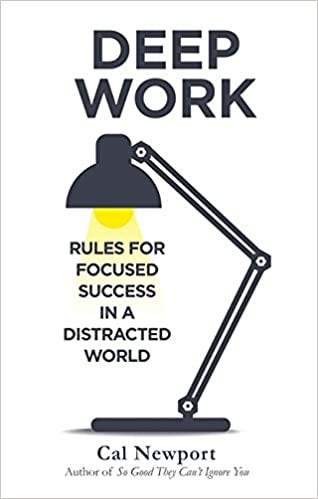
Deep Work by Cal Newport
Focused | Deep Work by Cal Newport
Information overload not only affects our productivity but also our ability to go deep in our work. What does going deep mean? It means performing an activity in a distraction-free state of concentration that pushes our cognitive capabilities to their limits. This ability to perform deep work is becoming increasingly rare as our attention is constantly being redirected with pings, incoming emails, clickbait, and the list goes on. And ironically deep work is becoming increasingly valuable in our economy. Knowledge workers today cannot be simple paper pushers. They must be able to master hard things that are cognitively demanding if they want to stay relevant. Deep Work outlines how to produce at your peak level and escape the constant distractions of modern-day life. And it emphasizes the importance of pushing ourselves to our cognitive limits which can only be truly done with focused concentration.
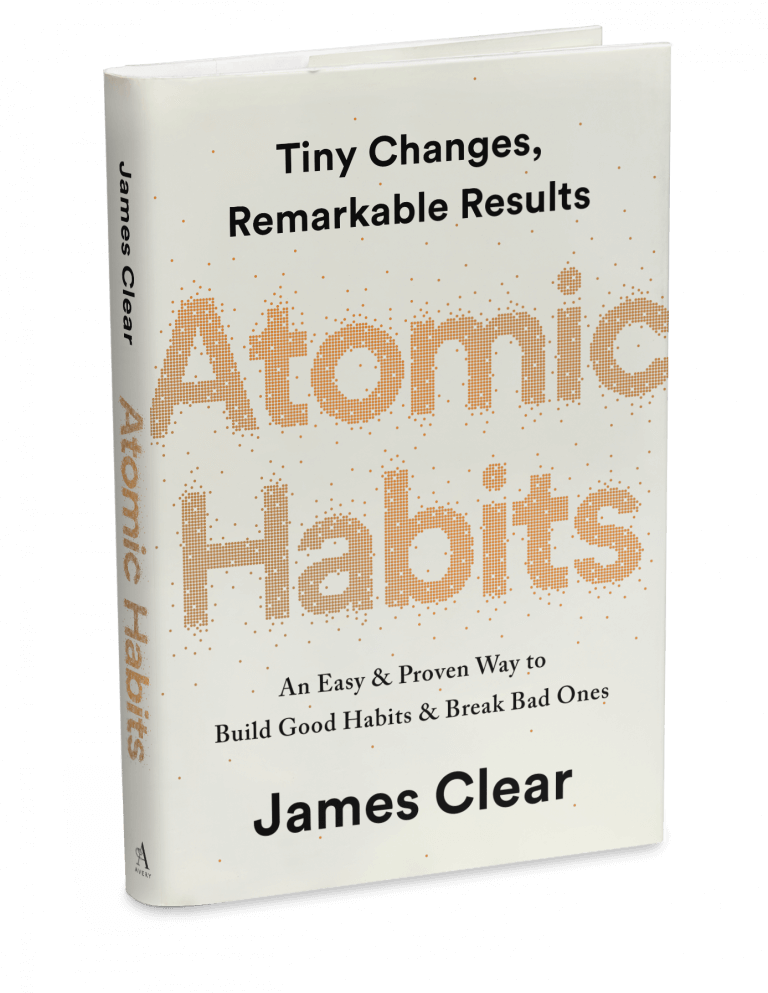
Atomic Habits by James Clear
Systems | Atomic Habits by James Clear
Part of Cal Newport’s tips for creating environments in which you can do “deep work” involves creating habits. And James Clear’s Atomic Habits is every personal-development junkie’s new crack. And rightly so, it’s just so good. Rather than focusing on the ever-present goal-setting gospel, James coaches us on creating systems that support our desired outcomes rather than focusing on the goals themselves. And no surprise this book came recommended by a DevOps Engineer (who are professionally notorious for loving a good system).
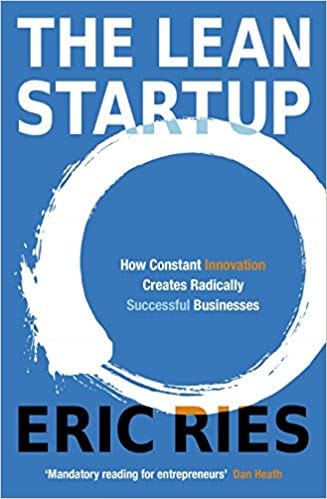
The Lean Startup by Eric Ries
Agile | The Lean Startup: How Constant Innovation Creates Radically Successful Businesses by Eric Ries
Before getting started on creating systems to achieve your goals, best make sure you’ve already read the entrepreneur’s bible, Lean Startup. Your systems need to be flexible and continually have your customers’ needs top of mind, in other words, your systems need to be agile. Eric Reis popularized the agile methodology outside of tech teams with his anecdotal examples of how companies can succeed by learning what their customers want through a continuous feedback loop. Rather than assuming what your customers want and spending twelve months building behind closed doors, Reis pushes companies to figure out — as quickly as possible — the right thing to build that customers want and will pay for through constant testing, adapting, and adjusting.
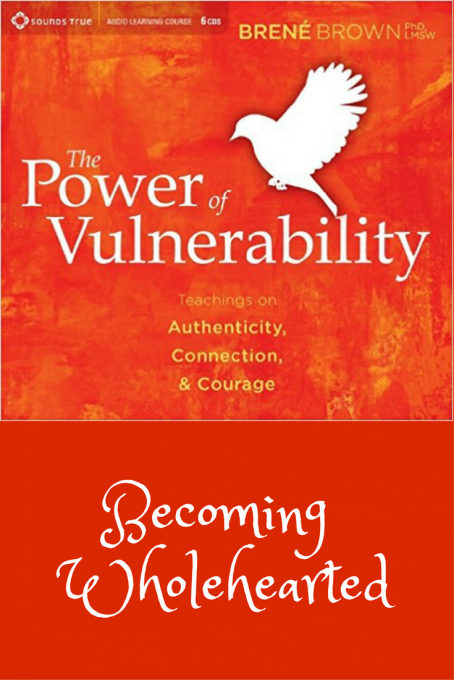
Power of Vulnerability by Brene Brown
Innovative | Power of Vulnerability by Brene Brown
A common term you hear when working with agile methodologies is “fail fast”. And Brene Brown is completely on board with this idea. While she’s not an Agile Coach, Brene does preach that for companies to be truly innovative, they must be okay with things not being perfect or going as planned or, in other words, failing. As individuals, we must be able to be vulnerable if we want to make real progress. We have to think outside the box, try new things, share ideas we label as “bad”. Since Brene’s world-famous Ted Talk on vulnerability almost a decade ago, more and more companies are getting on board with this idea of fostering innovation by creating a culture free of shame.

d5 Second Rule by Mel Robbins
Action-Oriented | 5 Second Rule by Mel Robbins
Even if you have read all the books on failing fast and being vulnerable, our monkey minds can still get the best of us. They talk us out of doing the simplest of tasks with the fear of missing the mark. The 5 Second Rule explains a practical technique that involves counting backward from five and acting before that little voice in our head says “stop, it will never work” or “are you crazy?” or “you will look so dumb”. In the end, if you fail to develop a go-get-it attitude, the other 5 books in this list are useless. To keep up, we have to act. And for many of us, that means ignoring the little voice in our head and just going for it.
Are you looking to change careers? Are you or your teams partially unemployed?
What if now was the right time to build your skills with Le Wagon and start the digital transformation of your business? 💪
Le Wagon is launching 3-day training courses 100% funded for employees on partial layoff 💰
🎨 UX / UI Design
Accelerate your projects through prototyping and establish your graphic charter
💻 Web Development
Understand what is behind a website and publish your company website
📊 Data Analysis
How to collect, clean, analyze and visualize your business data
For more information, get in touch with [email protected]
Shannon Graybill is the director of Le Wagon Portugal — focused on bringing tech training expertise to all companies.






0 Comments